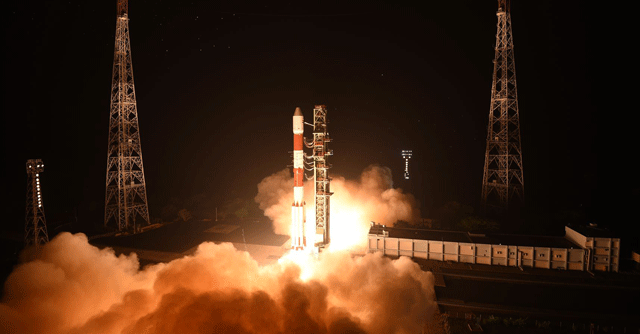
First Isro mission of 2022 overcomes 2021's failure to successfully puts EOS-04 in orbit

The Indian Space Research Organisation (Isro) on Monday successfully launched its Polar Satellite Launch Vehicle (PSLV), carrying the Earth Observation Satellite EOS-04 into sun-synchronous orbit to offer radar imaging services on Earth. This was Isro’s first successful launch of 2022, and the 54th launch of the PSLV indigenous rocket.
The launch took place from the first launch pad of Sriharikota’s Satish Dhawan Space Centre in Andhra Pradesh at 5:59AM on February 14. Confirming the success of the launch, Isro stated, “India’s Polar Satellite Launch Vehicle PSLV-C52 injected Earth Observation Satellite EOS-04, into an intended sun synchronous polar orbit of 529km altitude at 06:17 hours IST on February 14, 2022 from Satish Dhawan Space Centre.”
The EOS-04 satellite was the primary payload of the mission, and its successful deployment comes after the previous satellite, EOS-3, was lost due to a failure of the Isro Geosynchronous Satellite Launch Vehicle (GSLV)-F10. The mission’s failure was reportedly caused due to a technical failure in the cryogenic upper stage of the rocket that occurred after the separation of its booster stage, and was the fourth failure of Isro’s GSLV rockets since their debut in 2001.
EOS-04, meanwhile, was deployed successfully in its intended orbit. The satellite is a radar imaging satellite that is slated to produce high resolution satellite imagery that could be used for agriculture, flood mapping, forestry and other services.
A sun-synchronous orbit is a polar orbit that coordinates the angling of a satellite to always be coordinated with the sun.
The Isro PSLV-C52 rocket, meanwhile, also carried two other satellites on a ride-share basis. The first is the InspireSat-1 – a student satellite designed to study the properties of the Earth’s ionosphere and the coronal heating of the sun. The satellite was designed by the Indian Institute of Space Science and Technology (IIST), in collaboration with the University of Colorado, Boulder’s Laboratory of Atmospheric and Space Physics.
The second rideshare satellite is the INS-2TD, which is a technological demonstrator satellite built for the India-Bhutan Joint Satellite Mission. The latter carries a thermal camera as the main payload, and will look to study terrestrial heating properties.

